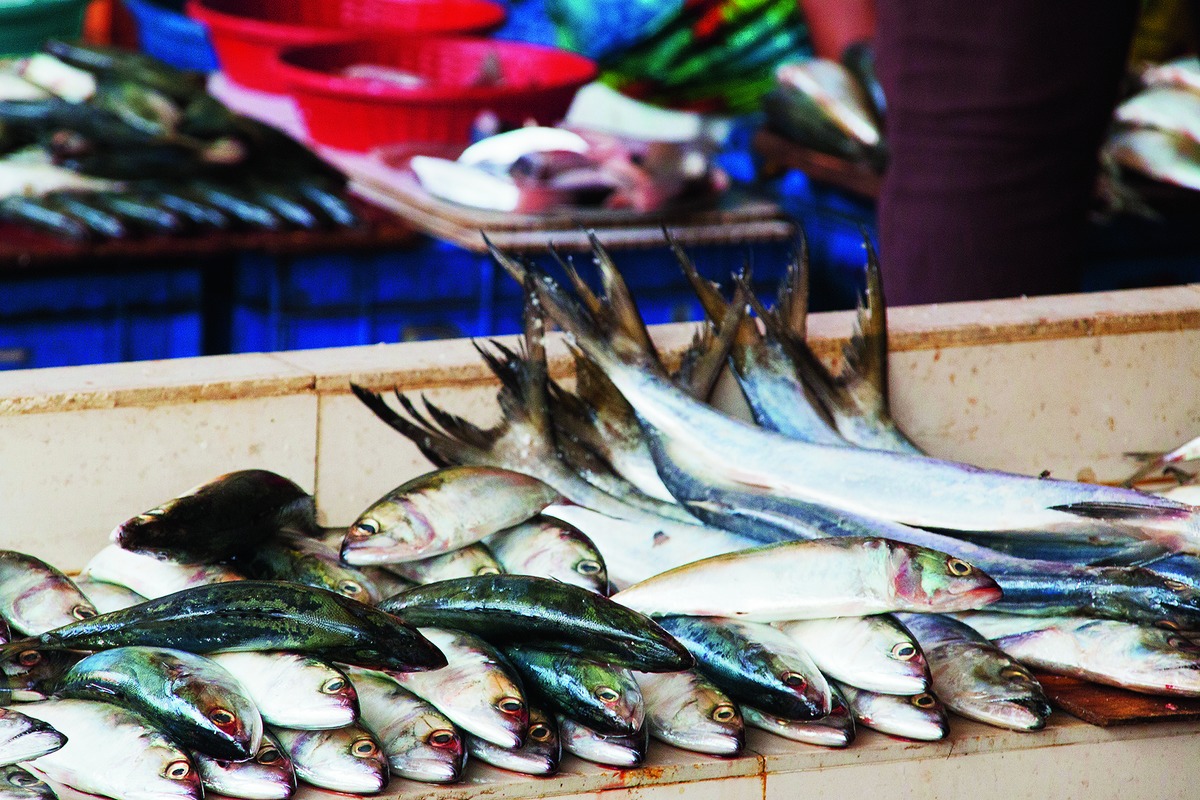
All over the world, fish is one of the main sources of animal protein. According to a report from the Food and Agriculture Organisation of the United Nations, it comprises about 20 per cent of all animal protein consumed. In developing countries such as India, half of all animal protein consumed is fish. Certain communities have a well-established tradition of eating fish every day.
Unfortunately, the fish available these days are highly contaminated, even if they haven't been injected with formalin - a preservative that is carcinogenic - says Nandita Shah, director and founder of Sharan-India, a wellness and lifestyle organisation.
"All the pollutants and contamination in water get concentrated in fish. And this could be directly related to the increasing rate of cancer, kidney failure, diabetes, high blood pressure and other lifestyle diseases among Bengalis and other fish-loving people today," explains Shah, who is a homeopath.
What sort of contamination do the fish have? Mercury, plastic and chemicals used in industries and agriculture, enumerates Shah.
According to Dr Sofia Pineda Ochoa of the Texas Medical Centre, US, a recent sample study from around the globe showed that 84 per cent fish contain unsafe levels of mercury. Once it enters the body, mercury is very hard to eliminate and can create a host of problems, including neurological ones.
About three years ago, a survey conducted in and around Calcutta found unsafe levels of mercury contamination in fish. Since then, India has signed the Minamata Convention on Mercury, an international treaty to curb mercury contamination.
Then there is plastic contamination. Every year about eight million tonnes of plastic are dumped into the seas. These break down into tiny particles which fish consume. These microplastics get deposited in their body and, eventually, in our bodies when we eat the fish.
A recent study by Belgium University says that, on an average, Europeans - who love seafood - end up consuming about 11,000 microplastics per person each year.
Plastic also pollutes our rivers and other water bodies, which too are contaminated by industrial and agricultural pollutants. Many agencies, including the Central Pollution Control Board of India, have found extremely high levels of metal contamination in our rivers from industrial waste. Uncontrolled use of chemical fertilisers and pesticides have also damaged our waterbodies and the fish in them. As if that were not enough, there have been newspaper reports about the pesticide, endosulfan, being used to easily kill and catch fish from the rivers of north Bengal. And that is not the only place where it is done.
If you believe farmed fish are a safe bet, think again. Large firms dealing in fish food often advise that a pond should be cleaned and dried out before a new season of fish farming. What this actually does is kill the natural ecosystem of the pond, forcing fish farmers to depend on fish food supplied by these large corporations. Unfortunately, such food is often laced with antibiotics and growth hormones so that the fish become ready for the market earlier. This is probably the reason so many people are turning resistant to antibiotics these days.
What then is the safest thing to do? You can opt for fish farmed in an organic environment to minimise contamination.
"But it is still animal protein, which is not natural for the human body," claims Rashmi Menon, a practicing homeopath based in Mumbai. "It is always better to have vegan, plant-based whole food," she says.
Just ask Pramod Pathak, an infantry officer with the Indian Army. Three years ago he weighed 108kg and had diabetes, blood pressure and cholesterol. After switching to a plant-based, vegan diet, he lost 33kg and doesn't have hypertension, cholesterol and diabetes any more, says Pathak on his blog titled "Diabetes is Reversible".
Many doctors, however, still recommend fish as a good source of protein. They argue that even vegetables and fruits may be contaminated. And fish, especially the fatty ones, are the source of the unsaturated fat, omega-3, which is important for our brain function and to restrict cardiovascular problems.
Says Shah of Sharan-India, "Fish do not produce omega-3 themselves. They acquire it from the plants they eat. We too can acquire it from nuts, seeds like chia, flax and hemp, and various vegetables. Fish not only have omega-3 but also saturated fats such as cholesterol. A piece of sea bass weighing 85gm, for example, has 74mg cholesterol. But plant sources of omega-3 do not have cholesterol."
It is best to avoid fish - as well as other animal proteins - and turn to a plant-based diet to lead a healthy life.










